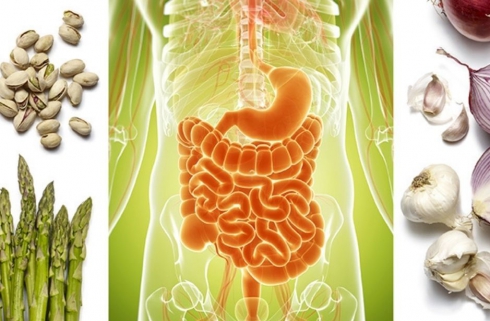Dietary fiber and the gut microbiome: the role of prebiotics, probiotics and metabiotic
A diet rich in fiber is essential for a healthy lifestyle, to maintain gut health and to boost our immune system. When we consume foods rich in fiber we help the gut microbiome to flourish, perform its important functions, and give us health.
However, across the western world, our dietary fiber intake is steadily declining. Only a small percentage of the population consume the recommended daily intake of 28-35 grams – the majority consume significantly less fiber.
Fiber is found in a range of foods, but it is mainly found in vegetables, fruits, whole grains, seeds and pulses. It is therefore important to include such foods in our daily menu.
Unlike other macronutrients in food, such as fat and protein, fiber is not broken down, absorbed or assimilated by our body and digestive enzymes. Instead, they pass through intact by the time they reach the large intestine or colon. There, the gut microbiome breaks down some of them, digests them and uses them to fuel itself, the gut wall and other important processes throughout our body.
Types of fiber
There are over 100 different types of fiber in plant-based foods, but scientists have gone on to group them into two main categories:
- Soluble fiber: This form of fiber dissolves in water and helps lower cholesterol and glucose levels in the blood.
- Insoluble fiber: This type of fiber promotes mobility in the digestive tract and increases stool volume. It helps prevent constipation and hemorrhoids.
The importance of fiber for the health of the gut microbiome
Fibre is also important for maintaining the health of the gut microbiome. Essential (good) gut bacteria feed on fibre, allowing our microflora to thrive and grow. But when there is a lack of fibre, these bacteria begin to break down the layer of mucus in our gut and use it as an energy source. This process poses risks to our health, as, the layers of mucus and the gut wall are essential for controlling inflammation, and for preventing digestive problems – even controlling chronic conditions such as autoimmune diseases and bowel cancer.
Our gut microbiome is a constantly changing system, so optimizing our diet and lifestyle can help change it for the better. The development of our gut microbiome is based on fibre, which improves our gut in three key areas:
Prebiotics
Prebiotics are non-digestible carbohydrates that act as food for probiotics, since they cannot be digested by the human body. They help maintain a healthy digestive system and are found in whole grains, bananas, asparagus, garlic, garlic, legumes, oatmeal, honey and onions.
Prebiotics also help reduce obesity, reduce the risk of diabetes and reduce the risk of several chronic diseases.
Probiotics
According to the World Health Organization, probiotics are live microorganisms that, when consumed in “adequate quantities, provide health benefits to the host.” Essentially, they are live beneficial microbes that we add directly to our gut.
Consuming probiotics can help boost the number of healthy microbiomes in our gut. This in turn promotes microbial diversity and helps keep pathogens under control.
Probiotics and the chemicals they produce are responsible for regulating many of our body’s functions. They can help with digestion and boost our immune system. Probiotics are mainly found in fermented foods such as tempeh (made from fermented soybeans), miso paste, yogurt, sauerkraut, kimchi, pickles, kefir, and many other foods.
Metabiotic
When the body consumes prebiotics and the microbes in our gut digest them and use them for their own energy needs, they also produce certain by-product molecules known as metabolites. These molecules, along with dead cells, are known as postbiotics. These provide our body with a number of health-protecting benefits, including:
- Vitamin B and K
- Short-chain fatty acids that maintain gut wall health and support metabolism
- Antimicrobial molecules
- Bacterial fragments that boost the immune system
As long as you take enough prebiotics and probiotics, you are helping your gut microbiome create the metabiotic needed for a healthy gut.

